
Amendment No 129 to the Statement of Dental Remuneration (SDR) was issued in May 2015.
The Statement of Dental Remuneration covers:
- Scales of fees from June 2015
- Rates of remuneration for a salaried dentist
- Seniority payments
- Vocational training allowances
- Maternity, paternity and adoptive leave payments
- Long-term sickness payments
- Continuing professional development allowances
- Reimbrusement of non-domestic rates
- Commitment payments
- Allowance and grats for practice improvements
- Clinical audit allowances
- Remote areas allowances
- Recruitment and retention allowances
- Practice allowances
- Reimbrusement of practice expenses
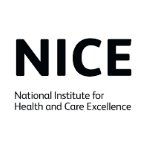
This NICE Guidance on:- Prophylaxis against infective endocarditis: Antimicrobial prophylaxis against infective endocarditis in adults and children undergoing interventional procedures
Covers patients who are at risk of infective endocarditis, specifically:-
- adults and children with certain problems affecting the structure of the heart (such as a replacement heart valve or hypertrophic cardiomyopathy)
- adults and children who have previously had infective endocarditis (whether or not they have an underlying cardiac problem)
- people having any of these procedures:
– any dental procedure
– any obstetric or gynaecological procedure, or childbirth
– any procedure on the bladder or urine system
– any procedure on the gullet, stomach or intestines
– any procedure on the airways, including ear, nose and throat procedures and bronchoscopy (a test used to diagnose some lung problems).
It does not specifically look at:
- people at risk of infective endocarditis who do not have heart problems (such as intravenous drug users)
- people having procedures that aren’t in the list above
The full guidance, tools, resources and information for the public are available on the NICE website
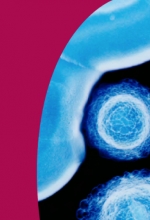
Guidance on the Prevention and Treatment of Periodontal Diseases in Primary Care was first published in June 2014.
The guidance aims to support the dental team in improving and maintaining the periodontal health of their patients. It provides clear and consistent practical evidence-based advice for the delivery of preventive care, including strategies to improve the oral hygiene of patients and for the treatment of periodontal diseases.
The full guidance and support materials can be downloaded from the SDCEP website.

The practice support manual has been developed to support the organization, management and running of primary care dental practices. It aims to help dental teams keep up to date with legislation and professional regulations, prepare successfully for practice inspection and carry out best practice.
The ‘ Practice Support Manual’ (PSM) has been launched as a web resource and is freely available to the dental profession in Scotland.
Advice on ten topics is now included:
- Ethical Practice
- Record-keeping
- Communication
- Risk Management
- Health and Safety (General)
- Health and Safety (Infection Control)
- Radiation Protection
- Disability Equality
- Medical Emergencies and Life Support
- Audit and Significant Event Analysis
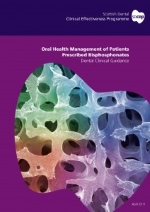
This guidance provides clear and practical advice for dentists in primary care on how to provide care for patients prescribed bisphosphonates. The guidance is also of relevance to prescribers and dispensers of bisphosphonates and to patients.
The full guidance and support materials can be downloaded from the SDCEP website.

This guidance document aims to facilitate the move from a restorative approach to patient care to a preventive and long-term approach that is risk-based and meets the specific needs of individual patients. It also aims to encourage the involvement of patients in managing their own oral health.
A ‘ Guidance in Brief ‘ document incorporates some important developments including:
- Oral Health Assessments: comprehensive assessments that are only carried out for new patients and then at intervals of 12 months for children or 24 months for adults.
- Focussed Oral Health Reviews: interim reassessment of elements of oral health previously identified as of concern, carried out at variable intervals depending on the patient’s risk of future oral disease.
- Applicability: clarification that the approach described is not suited to patients who only attend for urgent care.
- Record keeping: noting those assessment elements that have been completed and recording positive findings.
The full guidance and support materials can be downloaded from the SDCEP website.

This guidance from SDCEP is intended for use by staff in any healthcare setting who may be asked to advise or manage patients with acute dental problems. This includes non-dental professionals, such as general medical practice, emergency department and pharmacy staff, as well as members of the dental team.
The full guidance and support materials can be downloaded from the SDCEP website.
Go to the interactive web version of the full guidance
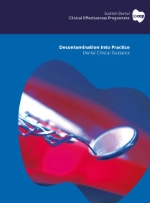
Decontamination into practice is a series of documents that provides advice on various aspects of instrument decontamination in dental practice, including:
- Introduction to decontamination
- Cleaning and Sterilization of reusable instruments
- Management of decontamination in the practice
- Appendices with related information
- Supporting Tools are also available to download.
The guidance was last updated in October 2014.
The guidance documents and supporting tools can be downloaded from the SDCEP website
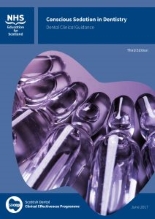
The Scottish Dental Clinical Effectiveness Programme (SDCEP) guidance on conscious sedation in dentistry was first published in 2006 .
The aim of the guidance is to promote good clinical practice through recommendations for the provision of conscious sedation for dental care that is both safe and effective.
An update of the guidance was published in June 2017.
The full guidance document can be downloaded from the SDCEP website.

The document details the latest changes to the Statement of Dental Remuneration (SDR) which come into force on the 1st June 2014.
Download a copy of the document

The revised statement of Dental Remuneration (SDR) comes into affect on the 1st April 2015
Download SDR Amendment No. 128
This is a Healthcare Improvement Scotland (HIS) appraisal of the guidance issued by the National Institute for Health and Clinical Excellence.
Background
This NICE appraisal has been considered by NHS Quality Improvement Scotland through its revised procedure of processing of NICE appraisals. NICE has said that HealOzone is not recommended as a treatment for specific types of tooth decay, unless it is being used in a clinical trial. The reason for this was that there was not enough reliable evidence that HealOzone is more effective than existing treatments for decay of the biting surfaces and roots of the teeth. No important differences were identified for this NICE appraisal, and NHS Quality Improvement Scotland advises that it is as valid for Scotland as for England and Wales.
NHSScotland should note that:
- No important differences were identified for this NICE appraisal, and NHS Quality Improvement Scotland advises that it is as valid for Scotland as for England and Wales.
- NHSScotland should take account of the NICE appraisal and this NHS Quality Improvement Scotland email in its planning, funding and provision of services to ensure that recommended drugs or treatments are made available to meet clinical need.
- NHS Quality Improvement Scotland advice represents the evidence-based view of NHS Quality Improvement Scotland.
- This advice does not override or replace the individual responsibility of health professionals to make appropriate decisions in the circumstances of their individual patients, in consultation with the patient and/or guardian or carer.
- No other publications on the NICE appraisal will be issued by NHS Quality Improvement Scotland.

This guidance from NICE makes recommendations on undertaking oral health needs assessments, developing a local strategy on oral health and delivering community-based interventions and activities.
The recommendations aim to:
- promote and protect oral health by improving diet and reducing consumption of sugary food and drinks, alcohol and tobacco
- improve oral hygiene
- increase the availability of fluoride (note: water fluoridation is outside the scope of this guideline)
- encourage people to go to the dentist regularly
- increase access to dental services.
Go to NICE webpage
The letter gives an overview of the adoption of procedures and provides guidance on patient identification, pregnancy, dose estimation and useful resources to support good practice in radiological protection.
Download a copy
This consultation includes responses from the General Dental Council, British Dental Association and the Medical and Dental Defence Union.
Go to the web document
The aim of this publication is provide definitive guidance to enable all persons involved with dental CBCT equipment to work with it safely and in accordance with UK radiation protection legislation.
Download a copy
The Records Management: NHS Code of Practice has been published by the Scottish Government eHealth Directorate as a guide to the required standards of practice in the management of records for those who work within or under contract to NHS organisations in Scotland. It is based on current legal requirements and professional best practice.
The guidance was drafted in collaboration with a working group made up of representatives from the Scottish Government Health Directorate, Scottish NHS archivists, NHS Health Records Managers, patient groups and GP Practices. As part of its work, the working group commissioned a public consultation on the retention and disposal of health records in 2005. The results of that consultation have informed the drafting of this guidance. The draft was updated and issued for consultation during Autumn 2007. The guidance has subsequently been reviewed and updated following the recommendations contained within the Strathmartine Report published in 2008 and requests from the service to incorporate the guidance and retention schedules for both Health Records and Administrative Records in to a single document.
Go to web document
The guidance provides clear oral health and nutrition advice for the whole population. A special focus is given to the under-5s as intervention in the earliest years is vital for improved outcomes in the short and long term and will positively impact across the life course. A focus is also given to nutritionally vulnerable older people as this group has specific nutritional and oral health needs, and are a priority group emphasised in recent government policy. There are other long-term diseases where further specialist advice would also be needed. Between-meals snack and drink advice is also given and will be a useful reference to enable professionals to give practical, consistent advice to all age groups.
Download a copy of the guidance








